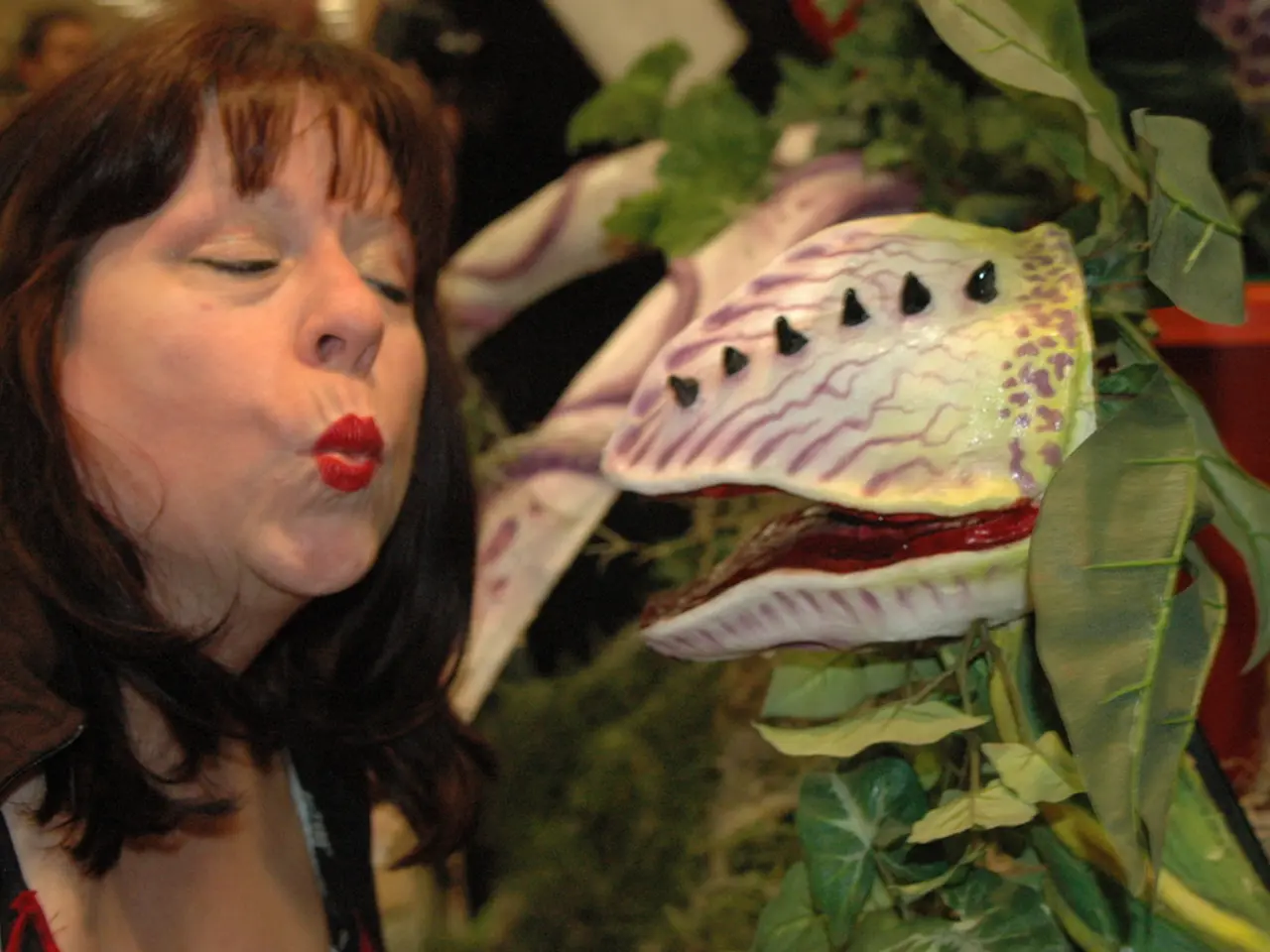Lung Sounds: Understanding Vesicular Breath Noises and their Normality
In the realm of medical diagnostics, listening to a patient's breath sounds is a crucial step in identifying potential health issues. One of the most common breath sounds heard during normal breathing is known as vesicular breath sounds.
Vesicular Breath Sounds: A Normal Indicator
Vesicular breath sounds are soft, low-pitched, and rustling, audible over most of the chest during breathing. They are loudest during inhalation and continuous, being the sounds that one would typically hear in a quiet room when a person is asked to remove their top and a stethoscope is used to listen for sounds at different points in the lungs.
Changes in Vesicular Breath Sounds
However, these sounds can change due to various illnesses or chronic conditions. For instance, abnormal sounds such as crackles, wheezes, and clicking may be heard. These changes can provide valuable insights for doctors, helping them to diagnose potential issues.
Conditions Affecting Vesicular Breath Sounds
Several health conditions can alter vesicular breath sounds. These include pneumonia, atelectasis, pulmonary edema, chronic obstructive pulmonary disease (COPD), and asthma.
- Pneumonia can cause consolidation in lung tissue, diminishing or altering vesicular breath sounds and producing bronchial breath sounds instead.
- Atelectasis can reduce air entry, thereby weakening or abolishing vesicular sounds in affected areas.
- Pulmonary edema can lead to fluid accumulation in alveoli, changing vesicular sounds by causing crackles and muffling the normal breath sounds.
- COPD and asthma can alter vesicular sounds and add wheezes due to airway narrowing and obstruction.
- Lung consolidation or fibrosis can lead to abnormal transmission of breath sounds, often bronchial sounds replacing vesicular sounds over involved areas.
Bronchial Breath Sounds
In contrast to vesicular breath sounds, bronchial breath sounds are loud and harsh, occurring mainly during exhalation, and have a small pause between inhalation and exhalation. They are loudest over the breastbone and come from large air passages in the lungs.
Abnormal Breath Sounds and Underlying Conditions
Abnormal breath sounds, known as adventitious breath sounds, can include wheezing, bubbling, squeaking, rales, pleural rub, stridor, and rhonchi. These sounds can be a sign of an underlying condition, such as asthma.
Importance of Consultation
When experiencing frequent wheezing or abnormal breathing sounds, it is essential to consult a doctor for diagnosis and treatment. This is especially important if the symptoms worsen or persist, or if they are accompanied by other concerning symptoms such as shortness of breath, chest pain, or bluish discoloration around the lips or fingers.
Bronchitis and Its Symptoms
Bronchitis occurs when the lungs' airways swell and produce mucus. Symptoms include coughing, soreness in the chest, mild headache, fatigue, sore throat, body aches, and may also include wheezing or rhonchi that improves with coughing.
When to Seek Immediate Medical Attention
In some cases, symptoms can escalate rapidly, requiring immediate medical attention. Seek immediate medical attention if a person develops blue or white discoloration around the lips or in the fingers and toes, severe shortness or breath or difficulty breathing, or trouble staying awake or loss of consciousness.
Pneumonia: Recognising the Symptoms
Pneumonia is an infection of one or both lungs that causes the air sacs to fill up with pus or fluid. Symptoms include fever, chills, shortness of breath, cough (typically with mucus), sharp chest pain, nausea, vomiting, diarrhea, bubbling, crackling, and rumbling sounds during inhalation.
Normal Vesicular Breath Sounds
Normal vesicular breath sounds are loudest and longest at the base of the lungs, louder in the right lung, and less loud in areas with less pulmonary tissue.
Understanding breath sounds and their changes can provide valuable insights into a person's health. By listening for these sounds and recognising any abnormalities, doctors can diagnose and treat conditions more effectively. It is always important to consult a healthcare professional if you suspect any health issues.
- Pneumonia, an infection of the lungs, can cause consolidation in lung tissue, resulting in diminished or altered vesicular breath sounds and the production of bronchial breath sounds instead.
- Therapies and treatments for respiratory conditions like pneumonia, bronchitis, and asthma are crucial for alleviating symptoms and ensuring overall health and wellness.
- Atelectasis, a condition that reduces air entry, can weaken or abolish vesicular breath sounds in affected areas, necessitating medical-conditions diagnosis and appropriate respiratory-conditions treatments.




